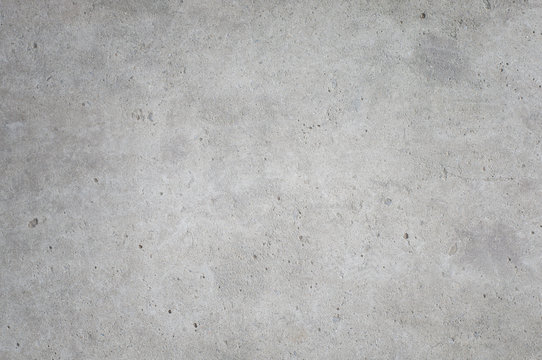Revealing the Eco-Friendly Advantages of Using Recycled Concrete in Sustainable Building Practices
In the world of sustainable construction practices, the utilization of recycled concrete stands as a critical yet commonly underestimated source. Beyond its conventional applications, recycled concrete offers a myriad of environment-friendly benefits that extend much beyond the confines of traditional construction products. From lowering ecological effect to improving cost-efficiency, the ramifications of incorporating recycled concrete in sustainable building methods are significant. This functional material not only addresses pressing ecological problems but likewise provides a sensible remedy to the challenges faced by the building and construction industry at large.
Environmental Advantages
Undoubtedly, one of the most significant benefits of making use of recycled concrete is its favorable influence on the atmosphere. By incorporating recycled concrete into construction practices, there is a considerable reduction in the requirement for new raw materials, resulting in conservation of natural deposits. This process helps in protecting aggregates, water, and energy that would have been utilized in producing new concrete. Furthermore, making use of recycled concrete decreases the amount of waste being sent out to garbage dumps, thus decreasing environmental air pollution and relieving the pressure on garbage dump capacities.

In addition, the manufacturing of standard concrete is a significant resource of carbon exhausts because of the energy-intensive process of cement production. On the other hand, recycled concrete has a reduced carbon footprint as it decreases the demand for brand-new concrete manufacturing. This reduction in carbon emissions contributes to mitigating environment modification and supports lasting building and construction techniques. Generally, the environmental advantages of making use of recycled concrete are considerable and play a critical function in promoting environmentally friendly construction approaches.
Cost-Efficiency
Achieving cost-efficiency is an extremely important consideration when assessing the application of recycled concrete in building jobs. Among the key benefits of using recycled concrete is its cost-effectiveness contrasted to standard concrete. The production of recycled concrete entails less energy and resources as it makes use of existing products, lowering the total job expenses substantially. Additionally, the schedule of recycled concrete locally can better reduce transportation costs, making it a more affordable option for construction projects.
Moreover, using recycled concrete can cause cost savings in land fill prices by drawing away concrete waste from disposal websites. This not just lowers the ecological influence yet additionally removes the prices associated with waste removal. The sturdiness and performance of recycled concrete are comparable to conventional concrete, making certain that price savings do not jeopardize the high quality of the construction.
Durability and Strength
Taking into consideration the substantial cost-efficiency benefits of using recycled concrete, it is crucial to examine its resilience and strength in building and construction applications. Recycled concrete offers comparable, otherwise exceptional, resilience and toughness residential properties to conventional concrete. Via innovations in processing techniques and quality assurance, recycled concrete can satisfy or surpass the performance criteria of traditional concrete. The process of reusing concrete includes crushing, arranging, and evaluating old concrete to produce accumulations that can be utilized in new construction jobs. These recycled accumulations are capable of giving sufficient compressive stamina, toughness, and lasting performance.

Waste Reduction
Effective waste reduction methods play a critical function in the sustainable use of resources within the building and construction industry. Waste reduction is a crucial benefit that adds considerably to ecological conservation when it comes to making use of recycled concrete. Standard building methods often produce considerable amounts of waste, particularly in the type of concrete rubble from demolition sites. By incorporating recycled concrete right into building and construction projects, this waste is repurposed and drawn away from landfills, lowering the total environmental influence of building and construction tasks.
In addition, the usage of recycled concrete can lead to set you back financial savings learn this here now for construction tasks, as it is commonly much more affordable than sourcing and carrying new products - Concrete. In verdict, waste decrease with the use of recycled concrete is an important component of lasting building practices that profits both the setting and the building market as a whole.
Energy Conservation
When it comes to utilizing recycled concrete in building and construction, substantial power cost savings are accomplished compared to traditional concrete manufacturing. The process of creating recycled concrete involves squashing and recycling existing concrete materials, which consumes much less power than mining, handling, and moving raw materials for brand-new concrete manufacturing.
Conclusion
To conclude, the utilization of recycled concrete in sustainable construction practices offers various environmental advantages, cost-efficiency, longevity, stamina, waste reduction, and power conservation. By including recycled concrete right into construction tasks, we can contribute to an extra sustainable and eco pleasant future. It is necessary for the building and construction sector to prioritize using recycled materials to help minimize the environmental effect of construction tasks.
One of the key advantages of making use of recycled concrete is its cost-effectiveness compared to typical concrete.Additionally, the use of recycled concrete can lead to cost savings in landfill prices by diverting concrete waste from disposal websites. The durability and efficiency of recycled see this site concrete are comparable to conventional concrete, making certain that price savings do not jeopardize the top quality of the construction.

Comments on “Concrete Repair and Maintenance: Keep Your Structures Solid and Long-Lasting”